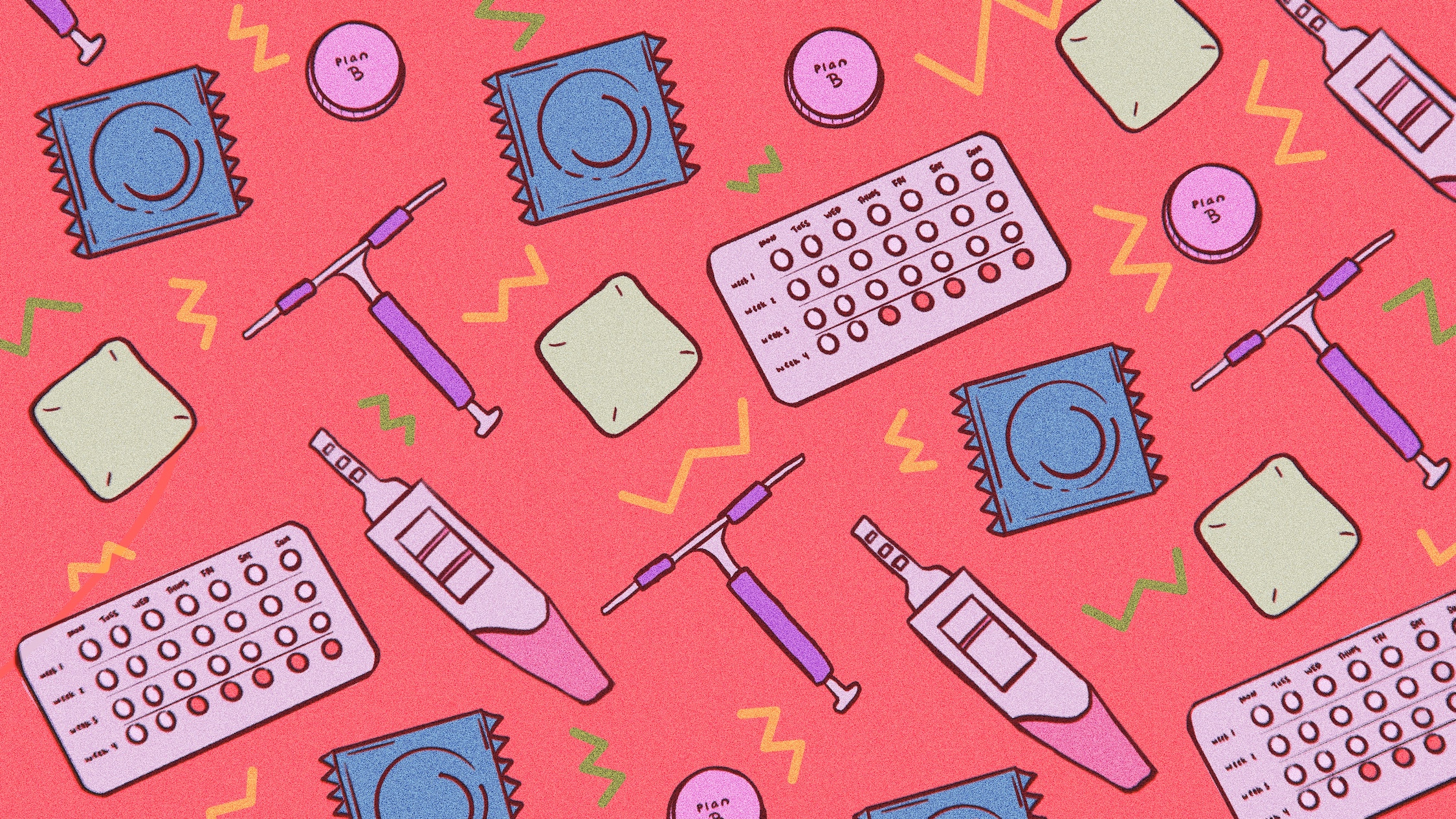Racism in Reproductive Health

Illustration by: Haven Jovel Morales
The United States is notorious for perpetuating inequality against minorities and creating an atmosphere that is so hostile that many are unable to seek basic medical attention. Such inequalities are prevalent in reproductive health where many are denied their reproductive rights including the right to reproduce, the right to affordable medical treatments, and the right to safe sex. Reproductive rights are a human rights issue that continues to be violated due to racism within the U.S. healthcare system.
The mistreatment of Black and Brown people in the medical field can be traced back to the 20th century when eugenics, which argued for a ‘purification’ of the U.S. population through ‘racial science,’ first infiltrated the American healthcare system. In 1927, the Supreme Court case Buck v. Bell made it legal for doctors to unethically perform coerced sterilization procedures on women of color. Maya Manian from the ACLU provides the disturbing statistic that “more than 60,000 coercive sterilizations were performed throughout the U.S. pursuant to these eugenics laws.”
These procedures continued into the 1970’s at the USC Medical Center, where doctors performed unethical sterilizations on Mexican-American women. Exploiting the expectant mothers’ unfamiliarity with English, doctors would trick the women into signing documents for a tubal ligation procedure. These women would enter the hospital during labor and, while enduring the pain of childbirth, were told they were signing a document for pain killers. A USC Medical School student recalled a doctor asking an expectant mother, “‘Do you want the pain killer? Then sign the papers. Do you want the pain to stop? Do you want to have to go through this again? Sign the papers.’” Other times, many women would be heavily medicated and unaware of what it was that they were signing.
This type of medical manipulation made headlines once again in 2020 when an ICE detention center nurse, Dawn Wooten, revealed that physicians would perform hysterectomies on detainees without proper consent. By licensing doctors who uphold racist beliefs, the U.S. fails to protect a Latina’s right to reproduce.
The issue of reproductive health becomes even more complicated when we take into account the barriers the Latinx community faces in securing health insurance. According to the U.S. Census Bureau, approximately 18.7% of the Latinx population in the U.S. remains uninsured, which is more than any other racial or ethnic group. A possible explanation for this lack of insurance is the fact that immigrants “who are undocumented or are legal permanent residents with less than five years in the U.S. are barred from benefiting from federally funded care under Medicaid.”
These unnecessary hurdles our community confronts makes it so that Latinas are also disproportionately affected by reproductive cancers. According to Planned Parenthood, “Latinas are more likely to be diagnosed with cervical cancer than women of any other racial or ethnic group” and “have the third highest death rates from cervical cancer.” What is most unfortunate about this statistic is that cervical cancer is 93% preventable by an HPV vaccination, but due to a lack of proper healthcare and medical attention, many remain unvaccinated. Additionally, cervical cancer patients have higher rates of remission when it is detected early through a Pap smear, but many cannot afford preventative screenings.
Another reproductive issue that affects Latinas is breast cancer, which claims more Latina lives than any other form of cancer. Alarmingly, “even when diagnosed at similar ages and stages and with similar tumor characteristics, Latinas are more likely to die from breast cancer than non-Latina white women.” The fact of the matter is that many Latinas are unable to afford adequate medical treatment or prevention screenings because of their lack of medical coverage. The inaccessibility of healthcare ensures that Latinas with reproductive cancers are unable to get the medical help that they need, worsening their condition and contributing to the higher mortality rate among Latinas.
This lack of medical attention and resources also leads to another issue in the Latinx community: the higher rates of sexually transmitted infections (STI). Considering that condoms must be purchased in stores or online, consumers must have a steady income, reliable transportation, or access to an electronic form of payment in order to obtain them. The inaccessibility of condoms, then, becomes a hurdle to practicing safe sex. The Centers for Disease Control and Prevention (CDC) stated the following facts about STI contraction in 2018: Latinx people are 1.9 times more likely to contract chlamydia, 1.4 times more likely to be diagnosed with gonorrhea, 1.7 times more likely to catch primary and secondary syphilis (which led to a 263.4% increase in cases of congenital syphilis in the Latinx community), and “accounted for 27% of the 37,968 new [HIV] diagnoses in the United States and dependent areas.”
Considering that these numbers are already high, it is even more alarming when we look at the statistics of transgender Latinx people. As reported by the 2015 U.S. Transgender Survey (USTS), transgender Latinx people were five times more likely to be diagnosed as HIV positive in comparison to the rest of the U.S. population (1.6% compared to 0.3%). This is four times “higher than the rate among white USTS respondents (0.4%) [and three times] higher than the rate among Latinx people in the U.S. population (0.5%).” It is suspected that these higher rates of transmission are due to Latinx transgender and nonbinary health concerns remaining an undiscussed topic within our own communites and the U.S. at large.
The USTS survey also indicates that 32% of their transgender Latinx responders had at least one or more negative experiences with a medical professional due to their gender identity. These experiences range from “being refused treatment, being verbally harassed, being physically or sexually assaulted, or having to teach the provider about transgender people in order to get appropriate care.” The intersectional identities of these individuals makes them more vulnerable to improper medical care and at risk for harm.
Medical discrimination against the Latinx community is the product of ignorance, anti-immigrant sentiments, xenophobia, racism, gender discrimination, the high cost of insurance, and the inaccessibility of resources. By withholding insurance from immigrant families, the U.S. is responsible for the countless undiagnosed reproductive cancers that worsen without medical attention. By making birth control and contraceptives inaccessible, capitalist values have prioritized profit over protecting Latinx people from STIs and unwanted pregnancy. By licensing doctors who do not value the lives of Latinx people, the American Medical Association is responsible for thousands of unconsented sterilizations and the mistreatment of transgender Latinx people.
Clearly, the U.S. healthcare system must change to protect the reproductive rights of Latinx people: no one should feel as though they are unworthy of medical treatment because of their race, ethnicity, gender, socioeconomic status, or citizenship status. Furthermore, no one should ever feel neglected and abused by the doctors they contract to help them. Reproductive justice is a human rights issue and needs to be addressed in this country. Collectively, we must change the narrative surrounding sexual health from availability to accessibility, because that is the underlying issue in many of these health concerns.











Leave a Reply
Want to join the discussion?Feel free to contribute!